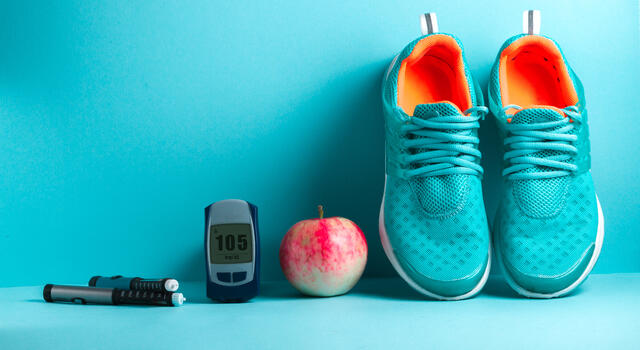Playing sport with diabetes is tricky. Hypoglycaemia - too low a sugar level - is a real risk as the effect of a sports activity on blood sugar depends on many factors. Athletes with type 1 diabetes are therefore prone to anxiety and difficulty when exercising, even though physical activity is very healthy for them too.
Type 1 diabetes is an autoimmune disease in which the person's pancreas no longer produces insulin. Insulin is a hormone that ensures the transfer of sugars from the blood to the muscles. When exercising, sugars are consumed and extremes in blood sugar levels can occur, resulting in associated health risks.
UCLL, pharmaceutical company Roche Diagnostics and UZ Leuven are coming up with a solution. Researchers from UCLL's Digital Solutions expertise centre will use algorithms to uncover relationships between activity, diet, insulin administration and blood glucose levels together with a team from Roche. They will use data to ensure that physically active people with diabetes can optimise their insulin dosage. UZ Leuven provides the medical knowledge as well as the clinical study that will feed the algorithm with data.
Danny Volkaerts is project leader at UCLL. "In this phase of our project, we are looking for people with type 1 diabetes who want to share their activity data and diabetes data with us. We do this through a developed data platform. We ask participants to wear a Garmin wristband and log their diet in a Digital Diary. With that data, we will further develop and perfect our algorithm," Danny says.
The expertise centre is also working in parallel with patient organisation Hippo & Friends vzw and Karel de Grote Hogeschool, with the support of the Flemish Government, on the Smart Diabetes Assistant. With this, the researchers are translating the above data into concrete sports advice. Volkaerts likes to cast a glance into the future: "The Slimme Diabetesassistent adapts based on your own data and thus gets smarter the more you exercise. You get advice on how best to prepare for a sports activity to ensure a safe and healthy experience. This is work in progress: we are in the process of tailoring the application to the needs of the athlete with diabetes."
Collaborating with a college is within reach for a lot of companies. The researchers at UCLL like to work together with organisations, companies and parties from the not-for-profit sector. Expertise centre Digital Solutions has innovative knowledge about data visualisation and processing and AI on board and succeeds in translating these projects into a concrete POC ready for valorisation. 'During Science Day on 27 November, we will bring our assistant to the general public. Everyone is welcome to get acquainted at Health House in Leuven,' Danny concludes.
